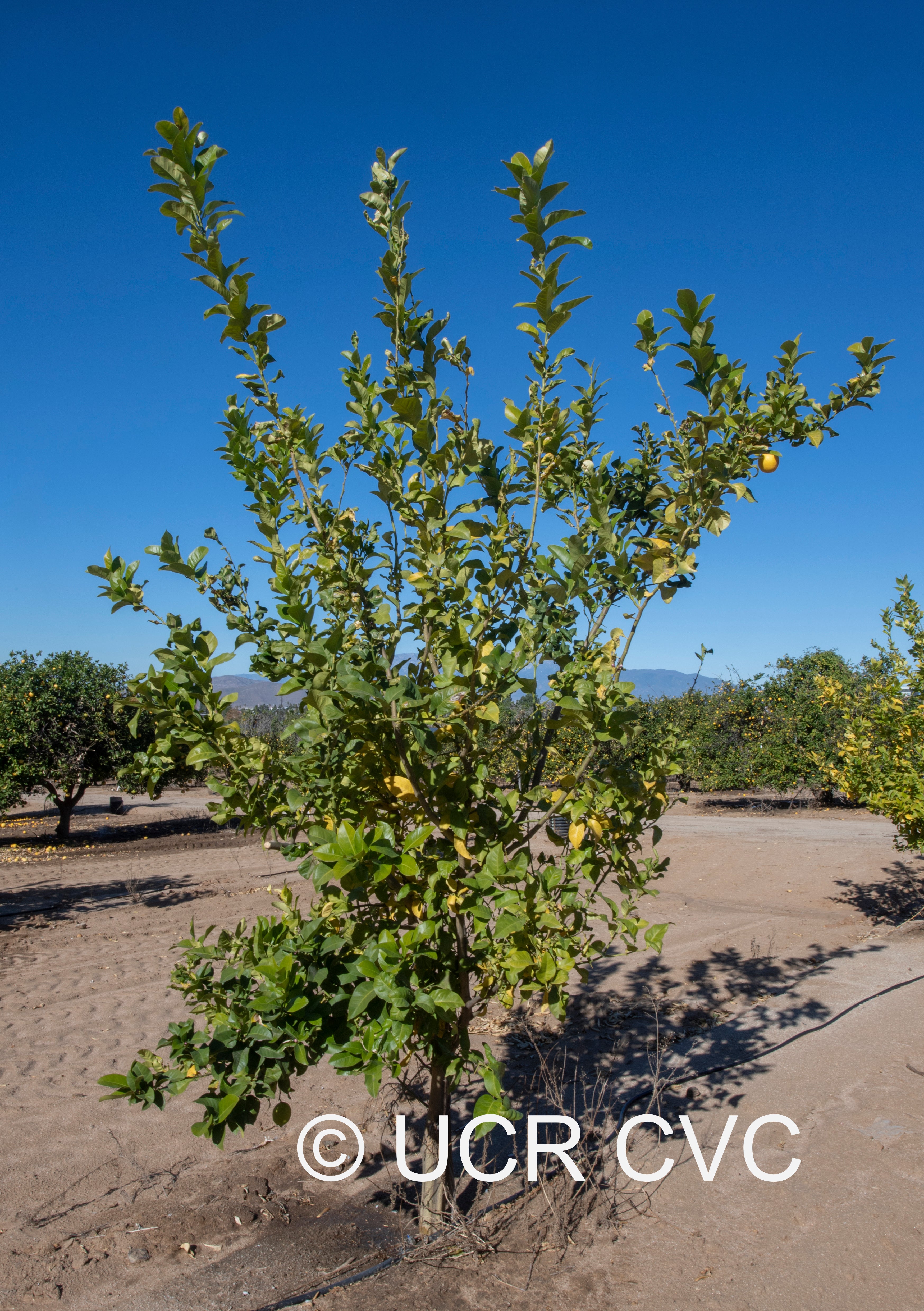Citrus limon (L.) Burm. f.
CRC 4247
VI 842
Source
Budwood received by the CCPP in 2009 as part of collaborative project with Greece, funded by the EU.
Parentage/origins
Donated from Pelopónnisos, Greece, thought to be a derivative 'Lisbon' lemon.
Rootstocks of accession
Carrizo
Season of ripeness at Riverside
Unknown
Notes and observations
RRK 2/4/2017: "This accession was received at the CCPP in November 2009 as part of a collaborative project with Greece funded by the European Union. Under this project a number of cultivars from the Greek national citrusfoundation collection at Poros Arboricultural Station (PAS) were tested at the CCPP for graft-transmissible pathogens of citrus (Wang et al.2013). Subsequently, the CCPP inquired of PAS if among the tested varietiesthere were any unique or interesting cultivars suitable for California. PAS highlighted 'Adamopoulou' lemon and 'Mihrio' mandarin.
'Adamopoulou' lemon is thought to be derived from 'Lisbon' lemon. In the 1950's, the director of Poros Arboriculture Station (Greece) observed a tree resistant to mal secco in an established 'Lisbon' orchard and named this tree 'Adamopoulou' (Passisis and Keramidas, 1983). Tripolitsiotis et al. (2013), using 9 RAPD and 5 ISSR markers, found that 'Adamopoulou' and other Greek lemon cultivars were distinct from 'Lisbon' and some other common lemons. In addition to being more tolerant to mal secco than 'Lisbon', 'Adamopoulou' is also more cold tolerant (Protopapadakis, 1994). Koutsioumari and Voloudakis (2011) cloned differentially expressed genes from 'Adamopoulou' and 'Lisbon', deriving 81 clones that revelaed homology with various proteins. Subsequently, Koutsioumari and Voloudakis (2016) reported that 'Adamopoulou' and 'Lisbon' had signficantly different gene expression for proteins known to be upregulated under biotic and abiotic stress."
KMT 8/2/2023: This accession was added to new introduction evaluations in 2020. From initial observations, Adamopolou is a standard 'Lisbon type' but bears more of a round shape. This variety is surprisingly, consistently seedless or near seedless in heavy pollen conditions. These findings will be officially reported once fruit quality evaluations for this variety conclude in 2025.
Availability
Commercially available in California through the Citrus Clonal Protection Program. Click here to order budwood.
USDA Germplasm Resources Information Network page for Adamopolou lemon
